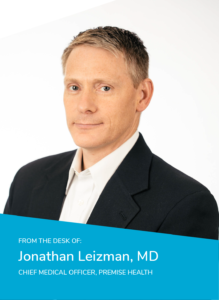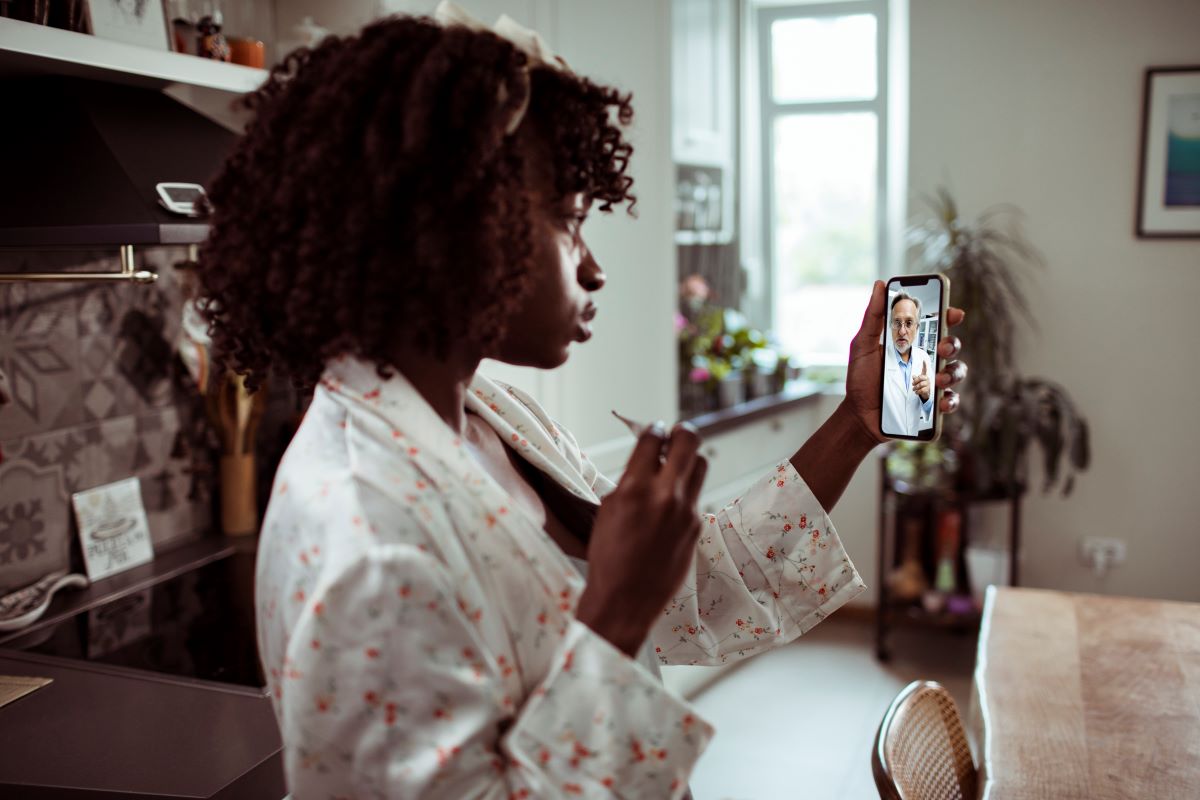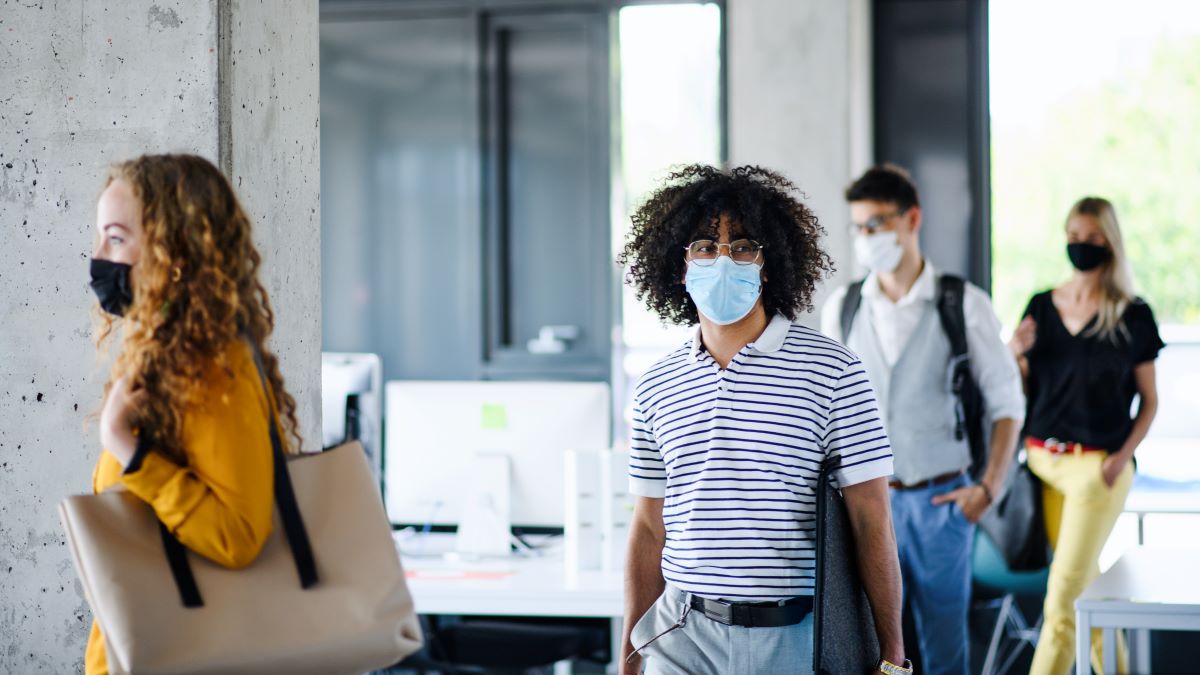Mask Myths Debunked – A Note From Our Chief Medical Officer

From The Desk Of Dr. Jonathan Leizman, Chief Medical Officer at Premise Health
We all play a critical role in slowing the spread of COVID-19. There is still a great deal of uncertainty in this situation, but evidence shows that taking simple preventive measures can have a significant impact on the trajectory of the virus. These measures include wearing a face mask, adhering to social distancing, washing your hands, and staying home when you’re sick.
There has been a significant amount of misinformation spread online about the efficacy of masks, causing a number of myths to surface. Let’s debunk a few of these myths:
Myth: Masks reduce oxygen intake, leading to increased toxin inhalation
Air travels freely through cloth and personal protective equipment (PPE). There is no risk of lower oxygen levels in healthy adults while correctly wearing a mask. Healthcare workers have worn masks for long shifts without consequence for decades.
Myth: If I am wearing a mask, I do not need to practice social distancing
Wearing a cloth face covering or mask is just one of the many preventive measures to help slow the spread of COVID-19. Everyone should practice social distancing (also known as physical distancing) and stay six feet from other people. Other preventive measures include regular handwashing, staying home if you do not feel well, and quarantining at home if you have been exposed to someone with COVID-19.
Myth: If I am not sick, I do not have to wear a mask
Research has shown that COVID-19 can be transmitted from individuals without symptoms (asymptomatic shedding) or before symptoms develop (pre-symptomatic shedding). These individuals can unknowingly pass the virus to others when they talk, sneeze, or cough, therefore making it important for everyone to wear a mask, regardless of symptoms. Remember: Masks are most likely to reduce the spread of COVID-19 when they are widely used by people in public settings.
Myth: Wearing a mask does not protect you from contracting COVID-19
Emerging research from the CDC and World Health Organization (WHO) suggests that cloth face coverings don’t just protect others, but they can protect the wearer as well. Not only do masks and face coverings reduce the movement of your own respiratory droplets when you talk, sneeze, or cough, but also prevent other’s respiratory secretions from getting into your mouth and nose when they talk, sneeze, or cough.
The latest evidence demonstrates masks are a critical tool in the fight against COVID-19. Therefore, we must wear masks if we want to significantly reduce the spread and quickly and safely return to normal activity. Please do your part: wear a mask and wear it regularly.
For the most up-to-date information on COVID-19 from Premise Health, visit our Coronavirus Information Center.
Next on industry insights.

[UPDATED] COVID-19: Screening and Testing Best Practices
Read the Blog
What Employers Need to Know About President Biden’s Path Out of the Pandemic COVID-19 Action Plan
Read the Blog